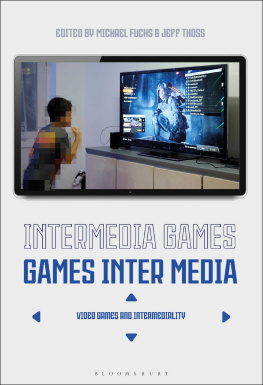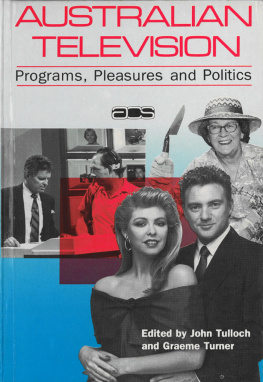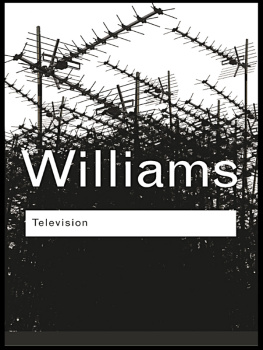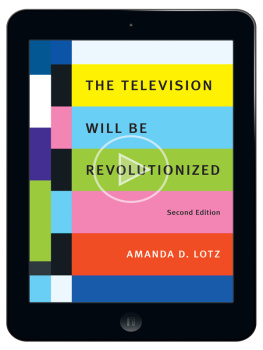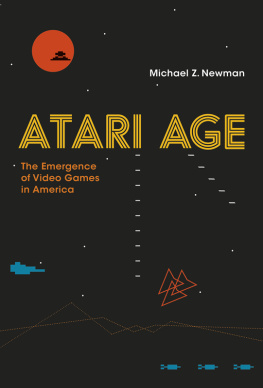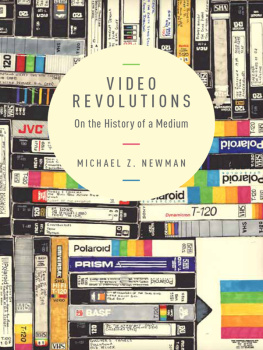ROUTLEDGE LIBRARY EDITIONS: TELEVISION
Volume 8
THE LANGUAGE OF TELEVISION
THE LANGUAGE OF TELEVISION
Uses and abuses
ALBERT HUNT
First published in 1981
This edition first published in 2013
by Routledge
2 Park Square, Milton Park, Abingdon, Oxon, OX14 4RN
Simultaneously published in the USA and Canada
by Routledge
711 Third Avenue, New York, NY 10017
Routledge is an imprint of the Taylor & Francis Group, an informa business
1981 Albert Hunt
All rights reserved. No part of this book may be reprinted or reproduced or utilised in any form or by any electronic, mechanical, or other means, now known or hereafter invented, including photocopying and recording, or in any information storage or retrieval system, without permission in writing from the publishers.
Trademark notice: Product or corporate names may be trademarks or registered trademarks, and are used only for identification and explanation without intent to infringe.
British Library Cataloguing in Publication Data
A catalogue record for this book is available from the British Library.
ISBN: 978-0-415-82199-5 (Set)
eISBN: 978-0-203-51517-4 (Set)
ISBN: 978-0-415-83722-4 (Volume 8)
eISBN: 978-0-203-38010-9 (Volume 8)
Publisher's Note
The publisher has gone to great lengths to ensure the quality of this reprint but points out that some imperfections in the original copies may be apparent.
Disclaimer
The publisher has made every effort to trace copyright holders and would welcome correspondence from those they have been unable to trace.
ALBERT HUNT
The Language of Television
Uses and abuses
With a Foreword by
Raymond Williams
First published in Great Britain in 1981 in simultaneous
hardback and paperback by Eyre Methuen Ltd, 11 New Fetter
Lane, London EC4P 4EE
Copyright 1981 Albert Hunt
Typeset by Computacomp (UK) Ltd, Fort William, Scotland
Printed in Great Britain by
Redwood Burn Ltd,
Trowbridge & Esher
ISBN 0 413 33730 8 (Hardback)
0 413 33740 5 (Paperback)
This book is available in both hardback and paperback editions. The paperback edition is sold subject to the condition that it shall not, by way of trade or otherwise, be lent, re-sold, hired out, or otherwise circulated without the publisher's prior consent in any form of binding or cover other than that in which it is published and without a similar condition being imposed on the subsequent purchaser.
The views expressed in this book are those of the author and not necessarily of the Independent Broadcast Authority.
CONTENTS
I should like to express particular thanks to the following people, without whom this book would have been impossible:
Brian Groombridge, who advised the Independent Television Authority to give me the Fellowship which enabled me to begin work on the book.
The IBA (as it had now become) for having been so patient and tolerant while the book was being written.
Arthur Arnold, of Bradford College, who supervised the work.
Bradford College for having given us the use of their equipment.
Ken Sparne, for having provided the technical information, as well as helping to develop the work.
The Bradford school-leavers who helped to invent the video games, gave us material, and created Spies at Work.
The other members of the video team Maurice Burgess, Rodney Challis, Carol Crowe, Paul Kerrigan, Keith Knowles, Larraine Hudson, Roger Simcox, Ian Taylor, Chris Vine.
Kathryn Perrill, for transcribing the video scripts.
Roberta Bonnin, for checking the proofs, and for her advice, encouragement, criticism and help with the writing.
And my family for their patience and help.
A.H.
by Raymond Williams
There is now a great deal of writing about television, of various kinds. This book is different from any of them, and its originality is important.
Most writing about television is in the form of newspaper reviews of particular programmes, as we call them. Yet actually what gets written about is not programmes but isolated shows, plays, presentations, discussions, documentaries. This follows from traditional newspaper reviews of books, plays and films. It can be useful if it is well done, and it has a certain interest however it is done, since television is one of the few interests we all now share in direct ways, and we obviously all want to talk about it or, for different reasons, to hear other people talking about it. In fact in one way this sort of writing is very unlike reviews of books, plays and films, which in most cases only the reviewers have yet seen, and which the rest of us read, in part, to get an idea of whether we want to see them. In television reviews, what is being written about is what we have already seen, and what quite often we shall have no chance to see again. So it relates, really, or ought to relate, to the process of talking over some common experience, and getting our ideas and feelings about it clear.
But this may be very difficult to do if only isolated programmes are written about, one after another, day by day and week by week. What can be missed is what is really involved in that word programme. Programme came to be used as a general word for almost anything a play, a documentary, a musical, a comedy show, a sports transmission, a discussion because underlying all these was the fact of a programme in the original meaning a plan of intended proceedings. What television offers is indeed this planned and announced sequence or on different channels alternative sequences of many kinds of production. And then for most of us the television experience, at its most central, has to do with these sequences of very diverse kinds of production. Of course we make our own selections within the available sequences, but many of us watch, even on a single evening, on the same screen, things as different as the news, a film, a discussion, an episode of a serial, a documentary, a play. Many of us now give more time to this watching than to something as important in our lives as preparing and eating food.
What has then to be thought and talked about, in these overlapping common experiences, is obviously more than the nature and quality of particular programmes this or that specific production. It is this larger area that needs to be explored. There have been attempts to do this, in different ways. One way is that of general observational sociology, trying to answer such questions as whether violence on television affects actual social behaviour, or whether politics on television affects how we think and vote. This kind of study is useful, but it is not often very close to the material of television itself, in its actual processes. It is concerned with generalised content, and then, through its methods of questionnaire and survey, with generalised results. Thus on its own, even at its best, it can address itself to only parts of the common experience.
Some more recent work has moved closer. There have been detailed analyses of how particular productions are constructed, and what conventions they depend on. There have been analyses of the production of television news, by the


